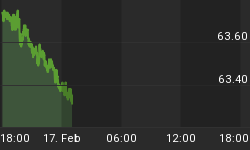The end of June marked what is hopefully the end of the Federal Reserve's policy of quantitative easing. For months the Fed has purchased hundreds of billions of dollars of Treasury debt, enabling the government to fund its profligate deficit spending, push the national debt to its limit, and further devalue the dollar. Confidence in the dollar is plummeting, confidence in the euro has been shattered by the European bond crisis, and beleaguered consumers and investors are slowly but surely awakening to the fact that government-issuedcurrencies do not hold their value.
Currency is sound only when it is recognized and accepted as such by individuals, through the actions of the market, without coercion. Throughout history, gold and silver have been the two commodities that have most fully satisfied the requirements of sound money. This is why people around the world are flocking once again to gold and silver as a store of value to replace their rapidly depreciating paper currencies. Even central banks have come to their senses and have begun to stock up on gold once again.
But in our country today, attempting to use gold and silver as money is severely punished, regardless of the fact that it is the only constitutionally-allowed legal tender! In one recent instance, entrepreneurs who attempted to create their own gold and silver currency were convicted by the federal government of "counterfeiting". Also, consider another case of an individual who was convicted of tax evasion for paying his employees with silver and gold coins rather than fiat paper dollars. The federal government acknowledges that such coins are legal tender at their face value, as they were issued by the U.S. government. But when it comes to income taxes owed by the employees who received them, the IRS suddenly deems the coins to be worth their full market value as precious metals.
These cases highlight the fact that a government monopoly on the issuance of money is purely a method of central control over the economy. If you can be forced to accept the government's increasingly devalued dollar, there is no limit to how far the government will go to debauch the currency. Anyone who attempts to create a market based currency-- meaning a currency with real value as determined by markets-- threatens to embarrass the federal government and expose the folly of our fiat monetary system. So the government destroys competition through its usual tools of arrest, confiscation, and incarceration.
This is why I have taken steps to restore the constitutional monetary system envisioned and practiced by our Founding Fathers. I recently introduced HR 1098, the Free Competition in Currency Act. This bill eliminates three of the major obstacles to the circulation of sound money: federal legal tender laws that force acceptance of Federal Reserve Notes; "counterfeiting" laws that serve no purpose other than to ban the creation of private commodity currencies; and tax laws that penalize the use of gold and silver coins as money. During this Congress I hope to hold hearings on this bill in order to highlight the importance of returning to a sound monetary system.
Allowing market participants to choose a sound currency will ensure that individuals' needs are met, rather than the needs of the government. Restoring sound money will restrict the ability of the government to reduce the citizenry's purchasing power and burden future generations with debt. Unlike the current system which benefits the Fed and its banking cartel, all Americans are better off with a sound currency.
















